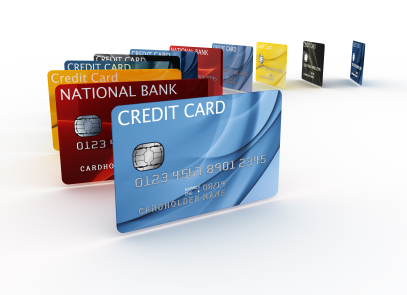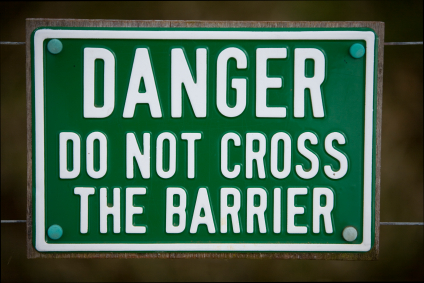
When it comes to credit scores, many consumers try to keep their head in the sand. They’re afraid to know the truth, or they think it really doesn’t matter.
But it does matter. In this case, what you don’t know can hurt you, and knowledge can become power.
Your credit score or scores play a central role in your financial life, and can even affect your personal life. That’s why you should monitor your credit report and scores regularly, and why you should develop good credit habits to keep those scores as high as possible. A bonus to receiving your credit report is the good advice you’ll get regarding ways to raise those scores.
1. Your Scores Will Determine Your Access to credit.
Lenders look at those scores to determine their risk in lending to you. Thus, when your scores are high you’ll have an easier time obtaining credit. When they’re low, you may not be able to obtain credit at any price, especially if you need money for a business start-up.
If you know you’re going to want credit in the future, get busy raising those scores!
2. Your Credit Scores Will Determine the Interest Rate You’ll Pay
With high credit scores, you’ll be offered credit at lower interest rates than those with poor scores. When your scores are low, lenders are taking an increased risk that you’ll default. They want to be well compensated for taking that risk.
Think about credit cards, whose interest rates can vary from under 5′% to 25%. In fact, I’ve seen offers made to people with poor credit with rates over 70% – combined with an annual fee reaching upwards of $200. Borrowers with high credit scores generally pay no annual fee.
Then think about home mortgage loans, where a difference of 1% on each $100,000 owed amounts to almost $60 per month.
If you want to pay the least possible interest on your next purchase, start raising those scores!
3. High Credit Scores Make You Attractive to Landlords
Low scores make you a high risk and your rental application is apt to be flatly turned down. No landlord wants the risk of tenants who fail to pay rent – or who move out in the middle of the night.
Thus, even if you treat your housing well and have always paid your rent on time, low scores could prevent you from living in the location you prefer.
If you want to live in a prime location, get your credit scores as high as you can!
4. Poor Credit Scores Lead to Utility Deposits
Utilities such as electricity, water, gas, phone, and cable TV can’t repossess what they’ve sold you if you fail to pay at the end of the month. Thus, when your credit scores indicate that you’re a high risk, they’ll demand a deposit up front before providing you with service.
If you want utility companies to trust you, raise your credit scores!
5. Last but definitely not least – Monitoring your credit report and scores will help you avoid the huge headache of identity theft.
Identity theft is always painful, but it is MORE painful when it’s been allowed to continue for months on end.
Running regular checks on your credit scores will alert you to a sudden drop, which might indicate fraudulent activity. And when you actually read your credit report, you’ll know instantly if someone has obtained new credit, rented a house, signed up for utilities, or even gotten a new job in your name.
Reporting such theft instantly will minimize the damage and the pain.
Request your free credit report and scores from creditscorequick.com today.
Just click here
A person’s consumer credit rating effects many areas of his or her financial life. It generally determines a person’s credit worthiness and ability to fulfill a financial commitment. A consumer’s credit score also dictates the interest rates that will be paid on auto, home, and personal loans and is sometimes used in the application for employment process. However, many drivers and vehicle owners do not realize that consumer credit scores are often used in the process of calculating and determining their car insurance rates.
Studies have shown that car insurance policy holders with poor consumer credit history are more likely to be involved in auto accidents and more likely to file claims. Car insurance companies reason that customers with a poor consumer credit rating are more of a financial liability than those that have good credit.
Credit Score as an Influencing Factor in Auto Insurance Premiums
Most states in the U.S. permit auto insurance companies to consider consumer credit ratings when calculating insurance premiums. The practice has been in use for home owner’s insurance providers and has extended to car insurance companies, as these providers continue to claim that drivers and policy holders with poor credit history generally are involved in more vehicle collision and make more claims than those drivers and policy holders that have a good credit rating. Despite criticism from consumer advocacy groups and protests from car insurance policy holders, most state legislatures support the practice of using a consumer’s credit score in the rate calculation process.
FICO Score
Auto insurance companies employ a variety of methods when incorporating consumer credit ratings into the process that determines individual premiums. The three major consumer credit rating bureaus, Transunion, Equifax, and Experian calculate and rate each consumer using a score based on a formula developed by the Fair Isaac Corporation, or FICO. The FICO score is a result of consideration into a consumer’s credit history such as:
- Current debt to credit limit ratio
- Payment history
- The presence or absence of bankruptcies, charge-offs and payment delinquencies
At their individual discretion, car insurance companies may use the FICO scores provided by all three credit bureaus, take an average of the three FICO scores or select only one FICO score to calculate and determine a person’s insurance rates.
In the competitive auto insurance marketplace, car insurance providers are always looking for ways to make their company more appealing and affordable than their competitors. One strategy is to provide discounts for multiple vehicles, good driving record and student coverage. Additionally, many insurance companies realize the value in attracting consumers with good credit, therefore they offer discounts to policy holders with a good credit rating.
Studies have shown that car insurance policy holders with poor credit may pay as much as thirty to fifty percent more for their insurance coverage than policy holders with good credit. One major car insurance company has been known to charge policy holders with poor credit as much as three times more for their car insurance coverage over those with excellent consumer credit.
Auto insurance policy holders and those that are shopping for auto insurance would be well advised to regularly check their consumer credit rating, FICO score, and their credit report that is provided by the three consumer credit rating bureaus, Transunion, Equifax and Experian. By regularly checking their credit report, consumers with bad credit can identify reasons for the poor credit rating and determine ways to remedy the problems.
Steps that can be taken to repair a poor credit history and credit score are to pay down credit card balances, contact financial institutions that may have reported false or erroneous information to the credit reporting bureaus for correction and be sure to maintain on time payments to creditors until financial commitments are fulfilled. By taking these steps, consumers with poor credit scores can, over time, enjoy the financial benefits of paying lower interest rates on loans, and potentially paying lower auto insurance premiums.
Other Determining Factors
While consumer credit ratings play a critical role in the calculation and determination of individual insurance rates and premiums, other factors should be recognized and considered when shopping for auto insurance coverage. Most states in the US require that every car, truck and motorcycle that is driven or operated on roads and highways be covered by an adequate auto insurance policy that is provided by a legitimate car insurance company.
The minimum legal requirements vary from state to state, and it is incumbent upon the consumer to conduct thorough and diligent research into what his or her state’s minimum auto insurance requirements are. Additionally, price comparison analysis and obtaining rate quotes are critical aspects in the auto insurance shopping process. By conducting adequate and thorough research, consumers with poor credit may discover a wide range of rates that are offered to people in their circumstances. Employing techniques to improve their credit history, understand how much credit is too much credit, and using negotiation tactics when shopping for car insurance may result in the consumer’s desired outcome of a obtaining a quality auto insurance policy at a reasonable, affordable rate, despite have a poor credit report.
Resources
There are many resources available for people with a poor consumer credit rating that are shopping for quality auto insurance coverage at competitive rates. A few of these resources may include:
- Online insurance directories
- Individual insurance company websites
- Insurance industry related Internet sites
These sources provide abundant information on the types of insurance policies that are available and the eligibility requirements associated with auto insurance policies. Auto insurance is a mandatory, long term investment. It is in the consumer’s best interest to compare rates and services provided by multiple auto insurance companies prior to committing to any one company. Such a practice could result in lower premiums, quality coverage, and superior service, no matter what the policy holder’s credit score.

There is little doubt that many Americans continue to struggle greatly when it comes to credit card debt but what they need to realize is that an improved credit score can make
erasing credit card debt much easier. By simply making sure all bills are paid on time and in full some borrowers can find that their credit score will increase drastically which in turn will give them great negotiating power when it comes to getting lower interest rates on credit cards, home loans or personal loans. Having a very poor credit score can make it nearly impossible to receive interest rate quotes at low rates.
Creating a weekly or monthly budget can go a very long way when it comes to erasing credit card debt. There are many free resources available online and a great place to start research is the FTC website. The FTC has created many valuable resources to help Americans better understand their rights when it comes to credit card debt. There are also many articles that help explain how to budget money wisely in an effort to get out of high interest rate credit card debt as quickly as possible.
With a large number of Americans considering bankruptcy and even foreclosure it comes as no surprise to see many searching for credit card debt relief or debt help. Fortunately, there are many free resources that can help Americans when it comes to lowering their monthly bills. Considering
Wells Fargo home loan modification might be an option for those who are currently struggling to pay on a Wells Fargo or Wachovia mortgage. Once again, this is another situation in which borrowers will greatly benefit from an improved credit score as it will allow them to refinance to a lower mortgage rate which in turn will help to lower monthly bills when it comes to a home loan.

Are you struggling to make payments towards your credit bills? If yes, you can take help of credit counseling agency and get yourself out of this tight financial situation.
What is a counseling agency?
Generally debtors seek help of credit counseling agencies to get help in stabilizing their finances. A counseling agency gives free consultation and helps you to reduce your debt and avoid bankruptcy. Along with preparing a new repayment plan, a good counselor will also impart knowledge on how to take measures against credit card scams and how to create a credit card fraud alert.
What is credit card fraud alert?
If you suddenly find that you are receiving exorbitant bill amount on your credit cards, for purchases you never made, or your credit limit has been increased without any prior notice, then, you must be a victim of credit card fraud. So, to avoid these things, you need to set up a credit card fraud alert.
Fraud alerts on a credit card indicate if a person attempts to increase the credit limit on your existing account, or obtain a new card on your current account, or tries to open a credit account in your name, etc. In these cases, the lender verifies whether or not you have authorized the request.
Usually, a credit card has an initial 90 day fraud alert. However, you can have an extended fraud alert, which will last for seven years. You can also opt that in order to verify any request; the creditor has to contact you personally over phone. However, in order to take benefit of this facility you need to provide with a valid police report, showing that you have been a victim of identity theft. You can also request 2 extra credit file disclosures and your name will be removed from prescreened offers of insurance or credit for the next 5 years.
How credit fraud alert works?
Whenever you request an alert through a credit bureau, say, Equifax, it will automatically send the request to other two credit bureaus, Experian and TransUnion. Within 48 hours the three credit bureaus will place the alert on your credit file. You need to provide the bureau with your name, present and past addresses, telephone number, social security number, date of birth, if you want to request or cancel a fraud alert.
When you go for credit counseling, you should ask the counselor to throw more light on this subject, so that you can protect yourself from being a victim of credit card scams.
Guest Post: CreditMagic.org

Using plastic to pay as you go is very convenient; you don’t have to worry about carrying a lot of cash that might get misplaced or stolen. In fact, it is nearly impossible to function in society today if you don’t have a credit card or debit card.
Some people find themselves in a financial bind with bad credit and can’t get traditional bank cards. For them, prepaid credit cards are a good option. There are many other reasons you might want to use a prepaid card too. Let’s look at some of the advantages of using these cards.
Use It Just Like A Credit Card
In most cases, you’ll be able to use prepaid credit cards just like you would any other bank card. That means you can shop at the mall or shop online and use your prepaid card. As long as the store or business is set up to take credit cards, they are able to take prepaid cards too. This is very beneficial for people who want to shop online but don’t have a traditional credit card.
Protect Your Privacy
Even if you do have other credit cards, you may wish to use a prepaid one when you shop online in order to protect your real financial data. You can put any amount you choose on the card and it is not linked to any of your other accounts, so if someone does steal your numbers, there is a limit as to how much damage they can do compared to the havoc they could cause with a traditional debit or credit card.
Easy To Get
Prepaid credit cards are easy to get also. You can pick one up at your local mall or other retail location such as grocery stores, pharmacies, and convenience stores. There is nothing to mail in and no approval process to go through. Just pick up a card, add money to it, and you are ready to start using it right away.
Teen Training Tool
Credit cards are convenient for teens too but if you are not ready to hand over the family credit card to your kids, consider getting them prepaid credit cards. There is no way they can go over limit or rack up huge bills. They will be learning financial responsibility with little risk to you.
Control Your Spending
If you have a difficult time sticking to a budget, prepaid credit cards can really help. Simply load the maximum amount you want to spend for the month and you won’t be able to go over your budget since your card won’t work once you have depleted all of your funds.
Acts As A Bank Account
If you can’t get a bank account for some reason, prepaid credit cards can be a lifesaver. You can have your paycheck or social security check loaded directly onto your card so you can access your money right away and won’t have to worry about cashing checks or carrying cash around. You’ll be able to function in society just as well as you could with a traditional bank account and debit card.
Make Great Gifts
When you are stumped for gift ideas, why not consider a prepaid card? These work just like gift certificates of yesteryear but prepaid credit cards can be used anywhere so your gift recipient isn’t locked into shopping at any one particular store.
Just like anything else though, there are disadvantages associated with prepaid credit cards too. Let’s take a look at some of those now.
No Credit Building
If you can’t get a credit card because you have poor credit, you need a way to rebuild your credit score. Prepaid cards can’t help in that area. No payments are made since purchases are deducted from your initial balance, so there is no monthly reporting to credit bureaus. You’ll not be able to rebuild your credit with a prepaid card.
Not Accepted Everywhere
While prepaid credit cards are accepted almost everywhere, some businesses have decided not to accept them and you should be prepared for that in advance. For example, many rental car companies do not accept prepaid credit cards during checkout when you pick up your car. You can usually use a prepaid card for paying for the rental upon return however. This can cause an awkward experience that might leave you stranded without transportation so it is a good idea to keep in mind prepaid cards are not accepted everywhere.
Fees and Expiration
Terms and conditions vary among issuers of prepaid credit cards so you want to play close attention. You may be charged a monthly or yearly service fee. It is also possible that your card will expire at a certain time even if you still have money left on it. Be sure to read the fine print and if you see something you don’t like, look elsewhere since there are several cards to choose from.
May Not Work For Recurring Payments
Depending upon the type of prepaid credit card, and the business you are using it with, you may not be able to order a subscription that has a monthly fee or buy a product with the purchase price split over several months. This is because the company runs the risk of your card not having a high enough balance month after month. Still, in many cases, you can use prepaid cards for these purposes, just be aware there’s a possibility you will run into trouble.
No Credit
Of course, prepaid credit cards are not based on credit at all. You must have the funds available up front to load onto the card. So if you are really strapped for cash, prepaid cards won’t be any help. If you want an actual credit line, you will have to apply for a traditional card or loan.
You can see there are advantages and disadvantages to prepaid credit cards. For many people, they are a real benefit as these cards enable them to buy products conveniently. Others may not need them but find them handy for privacy or budget reasons. If you can’t get a traditional credit card or debit card, prepaid credit cards are the next best thing.
About the Author: Mirsad Hasic is the owner of of best credit card deals, a consumer oriented site where he will show you how to find a credit card for your specific needs and also give you valuable tips on how to reach credit card debt relief.

Credit Cards & Divorce
According to various studies, money is still the #1 cause of divorce in the United States. Other causes include stress, lack of communication and dishonesty.
With that in mind, starry-eyed couples who are planning to marry should begin practicing good communication and honesty well ahead of the ceremony – and lay their financial cards on the table.
The first step is to get your free online credit reports and see exactly where you each stand. Knowing this can reduce stress, increase trust, and lead to good decision-making.
Next, come to an agreement about how money will be handled in your household. If there is a problem, decide how you will solve it. Money management is a tough issue, and definitely not romantic. But dealing with it ahead of the marriage is far safer both financially and emotionally.
To clear a point of confusion: Each partner in a marriage has his or her own credit file and credit report. Thus, your spouse’s past credit problems don’t have to damage yours.
If you kept everything separate throughout your marriage, you might not have a problem, but few people can do that. At some point you’ll want a joint checking account or a joint credit card. You may buy a car together, and you may both want to be on the deed to your new home.
When you mingle your money or obligations is when a spouse’s poor credit history can affect both of you.
Balances due on old judgments can suddenly make money disappear from your joint checking account. The interest rate on your credit card or car loan will be higher, and you’ll have a tough time getting that mortgage loan. You may even have trouble signing up for Cable TV or renting an apartment if the credit problems are severe.
If one of you has bad credit and you’re planning to buy a new home, let the partner with good credit get it done before the wedding. As a single person with only one income, you may not qualify for “as much house” as you would with two incomes, but that could be a blessing in disguise.
If you can afford the home with income from just one partner, you’ll avoid feeling like a slave to the house later, and will enjoy it more because it won’t be a financial burden.
If you plan to rent, do that ahead of time as well. And get signed up for cable before you’re required to show your spouse’s credit report. The same goes for a car purchase. The amount you’ll save on interest will more than compensate for not having both names on the loan.
Meanwhile, keep your checking and credit card accounts separate until the credit problems become history.
CreditQuick.com
Credit Card Changes, will they help ?
Another one of those new regulations from the CARD Act just went into effect on July 1. This one affects the look and content of your credit card statement.
Will these changes help you take control of spending and raise your credit scores? For some, seeing exactly how much money they’re giving to credit card issuers might cause some behavioral changes.
The first section gives an overview of activity, including the fees and interest charges for the billing period. You can see at a glance if you are using more than the “magic 30%” of your credit limit. This is a section to pay close attention to, because your credit limit could change at any time – with no advance warning.
The CARD Act didn’t restrict the banks on this point, and credit limit reductions are the reason why so many who pay their bills on time have seen their credit scores drop. They thought they were using 20% of their credit limit and suddenly found they were using 100%. The new rules only prevent banks from triggering over limit fees by lowering your limit to less than your current balance. (Yes, that happened to many consumers.)
The next section shows your new balance, minimum payment due, and the due date. It goes on to outline the fees you’ll pay if you fail to meet that due date. One thing it does NOT clarify is the time of day the payment is due on that date. Some cards require that payment be there by 5 p.m. – or even 3 p.m. – in the time zone where the bank is located. So if you’re on the west coast and the bank is in the east – payment might be required by noon, your time. To be safe, make sure your payment is made a day or more early.
Next, it shows how long it will take to pay off the balance if you make only the minimum payment. It should be sobering to many to see that making minimum payments will result in paying nearly as much -or even more- in interest as the original balance. This of course depends upon your interest rate. This box also shows the monthly payment required to pay the debt in 3 years, along with the total cost.
Another section gives the required 45 day warning about changes to your account interest and / or fees.
The best course of action: Pay off your credit card debts, and then only charge as much in a month as you can pay off when the statement arrives. Your credit scores will go up, and you’ll have more money to save or spend on the things you want.
Mike Clover
CreditQuick.com

Protect Your Money and Your Credit Scores With Individual Checking Accounts and Credit Cards
Sometimes there’s a good reason to add a parent to your checking account, and spouses regularly have joint checking accounts. It’s simply more convenient to have more than one person who can pay the bills. It’s also convenient to share a credit card with someone who is equally responsible for paying the bills.
Hopefully, you have a relationship of trust with those family members, and your money and your credit will both be safe.
But sharing a checking account or a credit card with a friend or a sweetheart can spell big trouble.
First – the checking account. The most obvious reason why it’s dangerous is that you and the other person may have a falling-out, and they could decide to clean out the account. Since they have just as much right as you do to the funds in a joint account, you’re just out the money.
Or, they may be poor record-keepers and write checks for more money than you have in the account – triggering overdraft charges and damage to your credit scores.
The other reason is that your friend’s past could come back to haunt you both.
Friends and sweethearts don’t always reveal everything from their past – such as credit problems that led to unpaid judgments. And, since creditors are becoming very aggressive at collections, you could wake up one morning to find that the funds in your joint account have been seized.
If yours is the only money in the account, you do have some recourse if you act before the money is seized. When you get notice of the account garnishment, you should have 30 days to notify the court that the money does not belong to the debtor in question. But… if your friend is embarrassed and doesn’t tell you about the notice – you’re out the money.
Credit cards are just as dangerous – whether you have a joint account or whether you simply add your friend as an additional signer on the card.
Credit card misuse won’t cause you to pay for someone’s old debt, but your partner could use your credit card to its limit – or beyond. They might do it in anger, but some people do it because they simply don’t have good money management skills. They fully intend to repay you.
This won’t just be an immediate financial hardship, it will lower your credit scores and make it difficult for you to borrow money in the future.
They say fences make good neighbors. By the same token, separate checking and credit card accounts make good friends.
Mike Clover
CreditQuick.com

How Short Sales can Affect you.
Thousands of real estate agents will tell you that listing your pre-foreclosure home as a short sale is the way to avoid ruining your credit score.
They’ll tell you that letting the house go to foreclosure will do damage to your credit rating that you’ll live with for the next ten years. And that is true, but a short sale could be just as damaging, to both your credit and your peace of mind.
During the time while your house is listed, you’ll be on pins and needles. You’ll be hoping for a buyer and getting farther and farther behind on payments as you wait. Once you’ve reached the 120 day late period, your credit is just as damaged as if you’d let the house go into foreclosure.
And now that the banks’ inefficiency and foot-dragging over short sales has become common knowledge, many buyers are simply choosing not to consider them. No buyer wants to commit to waiting 3 to 6 months just to find out whether or not a bank will allow a short sale to go forward.
Now the government has instituted programs that require banks to reply within 10 days. They’re also required to make a pre-determination of their bottom line price. The trouble is, participating in those programs is voluntary. And, even when they do participate, they don’t have to let the homeowner know that bottom line before they list their home.
So, any offer a homeowner accepts and sends for approval can still be subjected to the same long wait period and uncertainty as before.
But that’s not the worst of it. In addition to ruining your credit, a short sale could cost you money.
Homeowners going through the short sale process need to be very careful in their choice of real estate agents, because the negotiations are crucial.
While the feds have decided, at least temporarily, that the banks cannot come back on owners for a deficiency when a house is foreclosed, the rule does not apply to short sales.
So unless the agent representing you “knows the ropes” and negotiates strongly on your behalf, you as a homeowner could find yourself owing a huge bill for a house you no longer own.
I suppose you can’t blame the banks for trying to squeeze every dollar out of a contract that’s gone sour. They are, after all, only in business to make money. But it can be devastating for a homeowner who believes he’s been relieved of a burden to suddenly find he owes $50,000 or even $100,000 for a mortgage loan deficiency.
Just think what that could do to your credit scores!
Author: Mike Clover
CreditQuick.com

When planning your travel budget, allow for the cost of using money, and do some research before you pack your credit cards.
Using a credit card overseas almost always involves paying a foreign transaction fee, also known as a currency conversion fee. Visa and Mastercard charge a 1% transaction fee and most banks pass this on to their customers – after adding their own fees of from 1% to 3%. While the CARD Act reduced many credit card fees, this is one that was left untouched.
The exception is Capital One – which doesn’t pass on the Visa and Mastercard fees and doesn’t charge a foreign transaction fee of its own.
American Express charges 2.7% of each transaction after conversion to U.S. Dollars, while Chase, Bank of America, Citibank and HSBC charge 3%. Discover charges 2%.
ATM withdrawal fees are also a little higher than at home, with Bank of America charging $5 plus a 1% International fee. Chase charges $3 plus 3%, and Citibank charges $1.50 plus 3%. Thus, if you know you’ll need to have cash again tomorrow and the next day, take out enough to cover and avoid the extra $1.50 to $5 imposed for each transaction. Put the excess in the hotel or room safe until you need it. If your bank imposes a cap on daily withdrawals, call ahead and ask to have that cap increased for the duration of your trip.
So if you’re planning a trip, get out your credit card agreements and see what you’ll be paying. If you’ve misplaced them, go on line to check the fees. Then pack the card with the lowest fees for traveling abroad.
Along with transaction fees, you’ll be subject to the exchange rate, but fortunately, the exchange rate you’ll pay through your credit card will almost always be less than the fee you’d pay if you simply took your American dollars to the bank – here or abroad – to have them changed. This is because credit card companies pass along their “bulk” exchange rates.
Banks and exchange counters routinely charge from 5 to 8% for this service. The most expensive are exchange counters in airports and train stations. If you must exchange money while overseas, go to a bank.
Surprisingly, travelers are now reporting that travelers checks are not a good idea. More and more merchants are refusing to honor them – leaving you up a creek if you were counting on them to make a purchase.
One thing to remember before you leave home: Call your credit card company and your bank to let them know that you’ll be traveling. Otherwise, you could suddenly find your card being denied because the card issuer believes it to be stolen.
CreditScoreQuick.com











